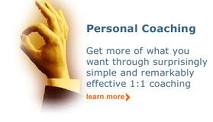WindRiver Strategies Joins The IAC

The IAC® was the brainchild of Thomas J. Leonard who is often credited as the founder of the modern coaching profession. As more people come to realize that great coaches can make a significant difference in their lives, the marketplace has responded with more coaches, from all walks of life. Academic and vocational training for coaches has also become a growing field.
It begs the questions. "What separates a great coach from the rest; how do I find a great coach; and, how do I know I am a great coach?"
One of the reasons people are drawn to coaching revolves around it’s departure from "business as usual". There is a resounding call for positive change in the world, and this profession was designed as a stimulus for that change. To date, more than 13.000 coaches in over 80 countries have subscribed to our newsletter and we have more than 800 active members worldwide.
The IAC enVISIONs a world where:
The IAC is on a MISSION to provide a highly accountable learning, certification, and ethical framework for aspiring and experienced coaches, so their mastery of coaching is valued and contributes to evolving human potential worldwide.
IAC embodies the following VALUES:
Ethical Principles
Every coach who joins the IAC must pledge to abide by these Ethical Principles and Code of Ethics. This Pledge is recorded on our website and available to the public via a Member History record.
Ethical Principles:
Competence
Coaches will maintain high standards of competence in their work.
Integrity
Coaches will represent themselves in an honest and fair manner, being cognizant of their particular competencies and limitations.
Coaches strive to be aware of their own belief systems, values, needs, and limitations and the effect of these on their work. To the extent feasible, they attempt to clarify for relevant parties the roles they are performing and to function appropriately in accordance with those roles.
Professional Responsibility
Coaches will uphold standards of ethical conduct that reflect well on the individual coach as well as the profession at large.
Respect for People's Rights and Dignity
Coaches will treat clients with dignity and respect being aware of cultural differences, and the client's right to autonomy, privacy, and confidentiality.
Coaches accord appropriate respect to the fundamental rights, dignity, and worth of all people. They respect the rights of individuals to privacy, confidentiality, self-determination, and autonomy, mindful that legal and other obligations may lead to inconsistency and conflict with the exercise of these rights. Coaches are aware of cultural, individual, and role differences, including those due to age, gender, race, ethnicity, national origin, religion, sexual orientation, disability, language, and socioeconomic status.
Coaches try to eliminate the effect on their work of biases based on those factors, and they do not knowingly participate in or condone unfair discriminatory practices.
It begs the questions. "What separates a great coach from the rest; how do I find a great coach; and, how do I know I am a great coach?"
One of the reasons people are drawn to coaching revolves around it’s departure from "business as usual". There is a resounding call for positive change in the world, and this profession was designed as a stimulus for that change. To date, more than 13.000 coaches in over 80 countries have subscribed to our newsletter and we have more than 800 active members worldwide.
The IAC enVISIONs a world where:
- Coaching professionals commit to continuously learning, growing, collaborating and holding themselves accountable;
- Coaching recipients are inspired to achieve their desired outcomes; and
- The world benefits in many surprising, life-giving ways.
The IAC is on a MISSION to provide a highly accountable learning, certification, and ethical framework for aspiring and experienced coaches, so their mastery of coaching is valued and contributes to evolving human potential worldwide.
IAC embodies the following VALUES:
- Lifelong learning
- Innovation and change
- Diversity and inclusiveness
- Partnership and caring
- Openness and transparency
- Abundance thinking and trust
- Sustainability and responsibility
- Inner peace and centering
- Integrity and high ethical standards
Ethical Principles
Every coach who joins the IAC must pledge to abide by these Ethical Principles and Code of Ethics. This Pledge is recorded on our website and available to the public via a Member History record.
Ethical Principles:
Competence
Coaches will maintain high standards of competence in their work.
Integrity
Coaches will represent themselves in an honest and fair manner, being cognizant of their particular competencies and limitations.
Coaches strive to be aware of their own belief systems, values, needs, and limitations and the effect of these on their work. To the extent feasible, they attempt to clarify for relevant parties the roles they are performing and to function appropriately in accordance with those roles.
Professional Responsibility
Coaches will uphold standards of ethical conduct that reflect well on the individual coach as well as the profession at large.
Respect for People's Rights and Dignity
Coaches will treat clients with dignity and respect being aware of cultural differences, and the client's right to autonomy, privacy, and confidentiality.
Coaches accord appropriate respect to the fundamental rights, dignity, and worth of all people. They respect the rights of individuals to privacy, confidentiality, self-determination, and autonomy, mindful that legal and other obligations may lead to inconsistency and conflict with the exercise of these rights. Coaches are aware of cultural, individual, and role differences, including those due to age, gender, race, ethnicity, national origin, religion, sexual orientation, disability, language, and socioeconomic status.
Coaches try to eliminate the effect on their work of biases based on those factors, and they do not knowingly participate in or condone unfair discriminatory practices.
